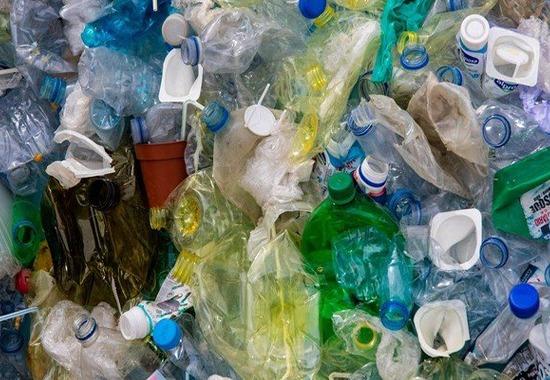Single-use plastics ban in India: The production, sale and use of single-use plastic items have been banned in the country from today i.e. Friday, July 1. A total of 19 items of single-use plastics have been banned under the Plastic Waste Management Rules. These include thermocol plates, cups, glasses, cutlery such as forks, spoons, knives, straws, trays, wrapping film on sweet boxes, invitation cards, film for cigarette packets, plastic flags, balloon sticks and ice cream sticks. It also includes wali sticks, creams, candy sticks and banners less than 100 microns.
The minimum thickness of plastic carry bags will be changed to 120 microns from the existing 75 microns by December 31, 2022, as part of the rules notified in August 2021 and India's efforts to phase out single-use plastics during 2022. Thick carry bags will be introduced to eliminate the use of single-use plastics.
To effectively implement the ban, control rooms would be set up at the national and state level and a team of officers would be tasked to check the illegal production, import, distribution, and sale of banned single-use plastic items, the ministry said.
Sikkim is the first state to ban the use of single-use plastic in 1998. The government has set a standard for the thickness of plastic bags and made it mandatory for the bags to be provided by retailers.
Cleanliness campaigns have been started in public places, national estates, forests and sea coasts to prevent plastic pollution. About 100 monuments have been included across the country.
Plastic was started to be used in road construction.
The Environment and Ecological Development Society have named Beat Plastic Pollution to reduce plastic pollution in Delhi.
The Central and State Pollution Control Authorities and the Union Ministry of Small, Micro and Medium Enterprises will provide technical assistance to small industrial units for the production of substitutes for banned single-use plastic items.
The Central Pollution Control Board estimated nearly four years ago that India generates about 9,200 metric tons of plastic waste daily, or more than 3.3 million metric tons a year. A section of the industry has claimed that around 70 per cent of the plastic waste in the country is recycled.
2.4 lakh tonnes of plastic are produced annually in India
Per capita consumption of 18 grams is in India
Globally 28 grams per capita is consumption in India
The plastic industry is worth Rs. 60,000 crores
88 thousand units are engaged in its construction
1 million people are associated with the plastics industry
Annual export of Rs. 25, 000 crores
At the same time, the traders' union Confederation of All India Traders (CAT) has demanded to postpone the ban on single-use plastic by one year. CAIT has written a letter to Environment Minister Bhupendra Yadav saying that a committee should be formed in this regard in which representatives of government officials and stakeholders will come together and they will find an alternative to single-use plastic.
Ban on these items: From July 1, single-use plastic items such as earbuds, plastic balloon sticks, plastic flags, plastic sticks of candy, plastic sticks of ice cream, thermocol decorative items, plastic plates, cups, glasses, forks, spoons, straws, trays, foil packaging for sweets, invitation card foil, cigarette packaging foil, PVC and plastic banners thinner than 100 microns, etc.
Rs. 500 to 2,000 rupees will be fined: From July 1, a fine of Rs 500 to Rs 2,000 will be imposed on common people for using banned products. At the same time, there will be a provision of punishment under section 15 of the Environment Protection Act 1986 for those who produce, import, store and sell it at the industrial level.
Such persons can be fined from Rs 20,000 to Rs 1 lakh or can be punished with imprisonment of either description for a term which may extend to five years, or with both. Actions like seizing products, imposing fines for environmental damage, and closing industries related to their production are also included.
